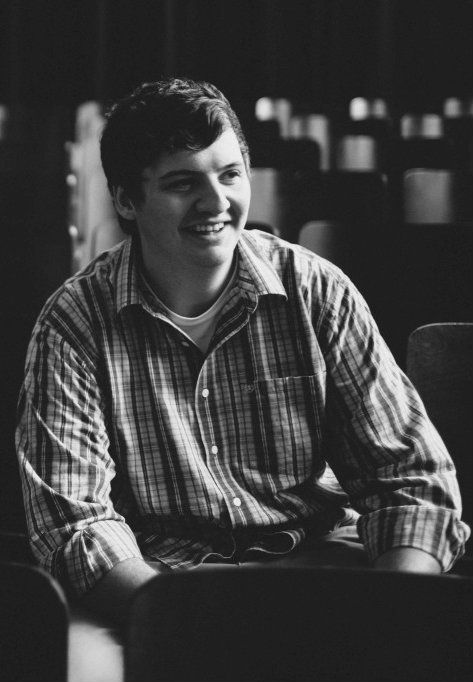“God’s will”, as people refer to it, only makes sense to me in retrospect. I have no clue what God is doing in the present. I act off hunches—little whispers from Elsewhere that can change the whole course of life. Moving to Charlotte began as an inkling that wouldn’t go away. It certainly made no sense to turn down a “dream job” with a nice salary to go to a little fledgling church-plant with no money and no promises. All of those little feelings that nudged Chelsi and me toward Charlotte make a lot more sense now than they did then. Similarly, last year, I had no clue would what come of my message about racial reconciliation to our congregation of 150 white, young professionals. But what’s happened since then has taken us all by surprise.
In April of last year, officers in Baltimore arrested Freddie Gray (a black man). While in police care in transit, Gray suffered severe injuries to the neck and spine. He died as a result of those injuries a week after the arrest. The country’s attention was fixed on Baltimore for weeks. There were many protests and demonstrations that garnered constant media coverage. The conversation about the events that transpired with Freddie Gray and the subsequent reaction of Baltimore-area residents dominated the social media landscape. Generalizations abounded and everyone seemed to know exactly what was really going on there. Language like “those thugs rioting in Baltimore for no reason” kept popping up on my feeds. It bothered me profoundly. There was utter carelessness with what was being said. The people demonstrating in Baltimore were being intentionally dehumanized by people with much passion and little empathy—many sweeping statements and precious few facts.
In April of last year in Charlotte, Center City Church was in the middle of series on Paul’s letter to the Ephesians. I was scheduled to speak the week after the events in Baltimore transpired. When I read the passage that had been assigned to me months before, I was overwhelmed by the convergence of everything. It really seemed to me that the Spirit was trying to say something to the Church—and more specifically, to Center City Church.
Charlotte was recently ranked 50th out of America’s 50 largest cities for upward mobility. What that means is that a child in Charlotte has the worst odds of any major American city of moving from the bottom fifth of incomes to the top fifth. In this beautiful city that I love so much, there is a strong racial divide that most people pretend doesn’t exist. Charlotte is booming economically. We’re growing at a rapid pace. But behind the mask of expansion is the same old dividing lines that have always been present in the Southeast. Glittering Charlotte is still haunted by the ghosts of its history.
It was with all this in mind—the stark racial divide that was exposed in Baltimore and the reality that Charlotte wasn’t much different—that I preached a sermon out of Ephesians 2 to a homogenous congregation of white young professionals. In the passage, Paul urges two groups of people to recognize that in the person of Jesus, God has reconciled two groups of people and created in himself a new humanity out of the two. In the message, I read excerpts from Paul’s letter to the Ephesians that he wrote in prison and excerpts from Dr. Martin Luther King Jr.’s stunning “Letters from a Birmingham Jail.” The message was clear (at least to me): In Christ we’re called to lay aside every distinction that separates and recognize our shared identity as sons and daughters of God. This doesn’t take away from the particularities that make us unique individually. Paul is saying that all of those distinctions are to be understood in the context of a new humanity that we are all a part of in Jesus. I preach a fair amount of sermons. Some of them feel like they mean something. Some of them feel meaningless. But this sermon is one that has really stuck with our people. Even when I was preaching it, it felt more significant than I could articulate. I knew somehow that it was the beginning of something new for our church. But I had no clue what it would be.
In April of last year, David Docusen (my boss and genuine friend) heard of an opportunity in West Charlotte (a side of town where the racial divide is crystal clear). From that moment until now, a massive amount of thought and work has gone into exploring a move for our church there. And it’s happening. Yesterday, David put ink to paper. We’re thrilled to be joining what God’s been doing for a long time in that neighborhood. (Read more about the project here. It’s as exciting of a project as anything I’ve heard of.)
So we’re stepping into the unknown. “God is light; in him there is no darkness at all,” John says. I would add to that verse, “but God is Mystery; in him there is no clarity at all.” We’re just acting off the hunch that we’re supposed to do something that doesn’t make a ton of sense. But God is all over it. I’m excited to reflect in a few years and see how all this fits into the story that’s being written about Center City Church. Of one thing I’m sure, God is up to something.
“For he himself is our peace, who has made the two groups one and has destroyed the barrier…His purpose was to create in himself one new humanity out of the two, thus making peace, and in one body to reconcile both of them to God through the cross, by which he put to death their hostility.” (Ephesians 2:14-16)


